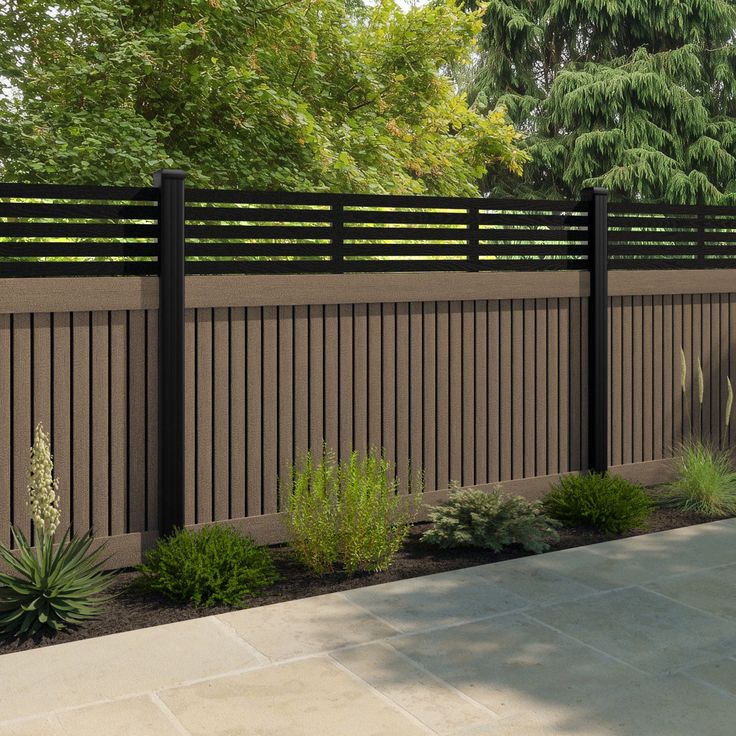When investing in a fence for your New Zealand backyard, durability is often at the top of the list of priorities. Homeowners want a solution that can withstand the country’s diverse climate, from harsh UV rays to heavy rainfall and strong winds, without constant upkeep. Wood-Plastic Composite (WPC) fencing stands out as a leading material in this regard, renowned for its exceptional long-lasting durability that far surpasses traditional timber options. This engineered material offers a robust and resilient barrier, providing peace of mind and sustained aesthetic appeal for decades.
This article delves into the specific attributes that contribute to the remarkable long-lasting durability of wpc fence, highlighting why it’s a smart investment for any property.
1. Engineered for Resilience: The Composite Advantage
The inherent strength and durability of WPC stem directly from its unique composition. By blending recycled wood fibres with recycled plastic polymers, WPC combines the best qualities of both materials while mitigating their weaknesses.
- Dense and Consistent: Unlike natural wood, which can have knots, grain irregularities, and varying densities, WPC is manufactured to be a consistently dense and uniform material. This reduces weak points and enhances overall structural integrity.
- Synergistic Properties: The plastic encapsulates the wood fibres, protecting them from moisture and pests, while the wood fibres provide rigidity and a natural feel. This synergy results in a material that is stronger and more stable than either component on its own.
2. Unmatched Resistance to Environmental Factors
WPC’s formulation makes it highly resistant to the common enemies of outdoor structures, ensuring it maintains its integrity in challenging conditions.
- Moisture and Rot Proof: One of WPC’s most significant advantages is its imperviousness to water. Unlike wood, WPC does not absorb moisture, which means it will not rot, decay, or suffer from fungal growth, even in consistently damp or humid environments. This eliminates the need for chemical treatments and significantly extends its lifespan.
- Insect and Pest Resistant: The plastic content in WPC makes it an unappealing and impenetrable material for wood-boring insects like termites and borer beetles. This inherent resistance means your fence is protected from internal damage without the need for pesticides.
- UV Stability: High-quality WPC products are manufactured with UV inhibitors that protect the material from the sun’s harsh ultraviolet rays. While some initial “weathering” may occur, the colour stabilises and resists significant fading or degradation over many years, ensuring the fence retains its aesthetic appeal.
3. Stability Against Weather Extremes
New Zealand’s climate can be unpredictable, with significant temperature fluctuations and strong winds. WPC fencing is designed to perform reliably under these varied conditions.
- Dimensional Stability: WPC is far less prone to expansion, contraction, warping, or cracking due to changes in temperature and humidity compared to natural timber. This superior dimensional stability ensures the fence panels remain straight and true over time.
- Wind Resistance: The dense and consistent nature of WPC panels, combined with robust installation systems, provides excellent resistance to high winds. Unlike timber, which can splinter or have fasteners loosen, WPC’s uniform composition makes it more resilient to wind-induced stress.
4. Minimal Degradation, Maximum Lifespan
The low-maintenance nature of WPC directly translates into a longer lifespan. Since it doesn’t require regular painting, staining, or sealing, there’s less opportunity for the material to degrade due to neglected upkeep.
- Reduced Wear and Tear: The absence of surface treatments means no peeling, flaking, or blistering. The material itself is highly resistant to surface abrasion and impact, contributing to its long-term integrity.
- Consistent Performance: WPC maintains its structural and aesthetic qualities consistently over time, meaning you won’t see sections of your fence deteriorating at different rates, as can happen with wood.
5. The Long-Term Value Proposition
While the initial cost of WPC fencing might be higher than basic timber, its exceptional long-lasting durability makes it a more cost-effective choice in the long run. The significant savings on maintenance (no painting, staining, repairs, or pest control) combined with a lifespan that can be two to three times longer than traditional wood, means WPC offers superior value over its entire lifecycle. This makes it a smart, durable, and worry-free investment for any New Zealand homeowner.

